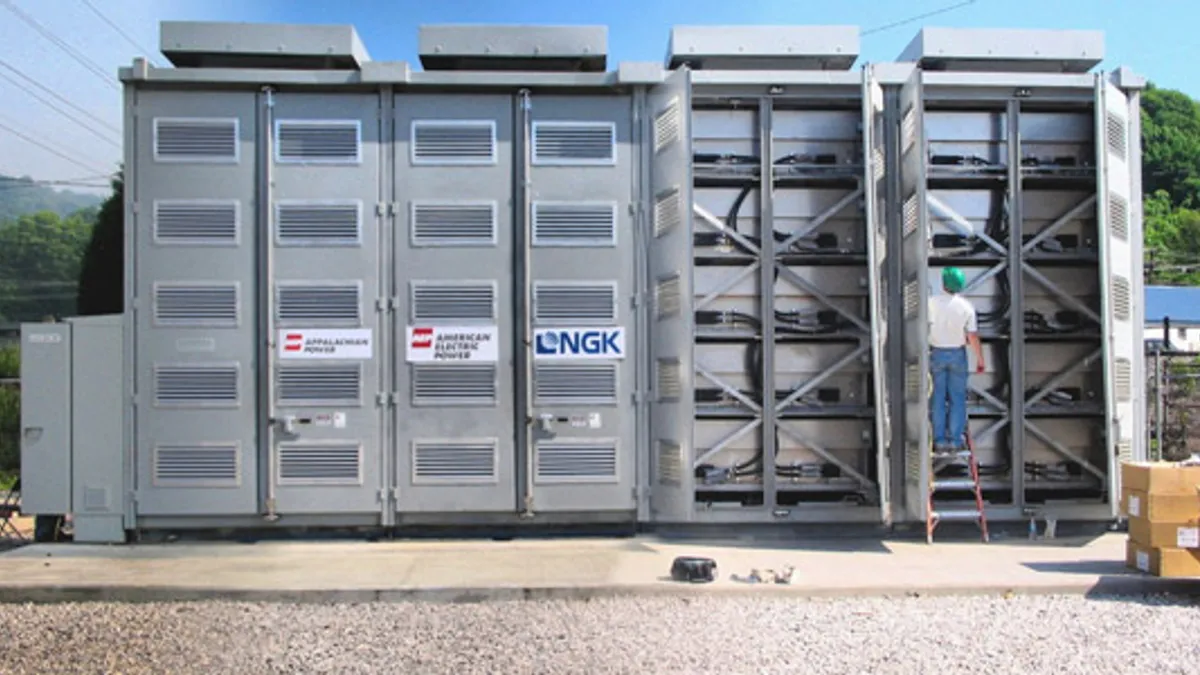Dive Brief:
- Oncor Electric, a utility with 10 million customers in Texas, will ask state regulators to authorize it to spend $5.2 billion on a storage solution to better integrate wind and solar power into the state's electric grid, according to the Dallas Morning News.
- According to new research from the Brattle Group backed by Oncor, installing 3-5 GW of grid-integrated, distributed electricity storage would be the most cost-effective way for the Texas grid to solve issues with the integration of renewable power. Brattle economists estimated the battery storage could be installed at a cost of $350/kWh.
- An Oncor spokesman told Bloomberg that the company expects to propose a spending plan for battery storage within months
Dive Insight:
New research by the Brattle Group recommends Texas adopt a regulatory framework that would allow transmission and distribution companies to deploy electricity storage on the distribution system and “auction off” to independent third parties the rights to use the storage facilities for participation in the wholesale market.
“Considering both the impact on electricity bills and improved reliability of grid-integrated storage, the customer benefits would significantly exceed costs,” said Judy Chang, a Brattle principal and lead author of the study.
Chang cautioned, however, that an efficient scale of storage deployment would not be reached if deployed by merchant developers who rely solely on participation in the wholesale market, or by retail customers who use it solely for back-up power.
"These entities, independently and separately, will not be able to capture the full value of the storage to viably support the magnitude of investment that could be cost-effective for ERCOT," Chang said.
Oncor's proposal to spend up to $5.2 billion on storage is a first for a transmission and distribution utility, according to Greentech Media. The company said it could begin installing refrigerator to dumpster-sized batteries behind shopping centers and in Texas neighborhoods by 2018, if it gets approval from state regulators.















